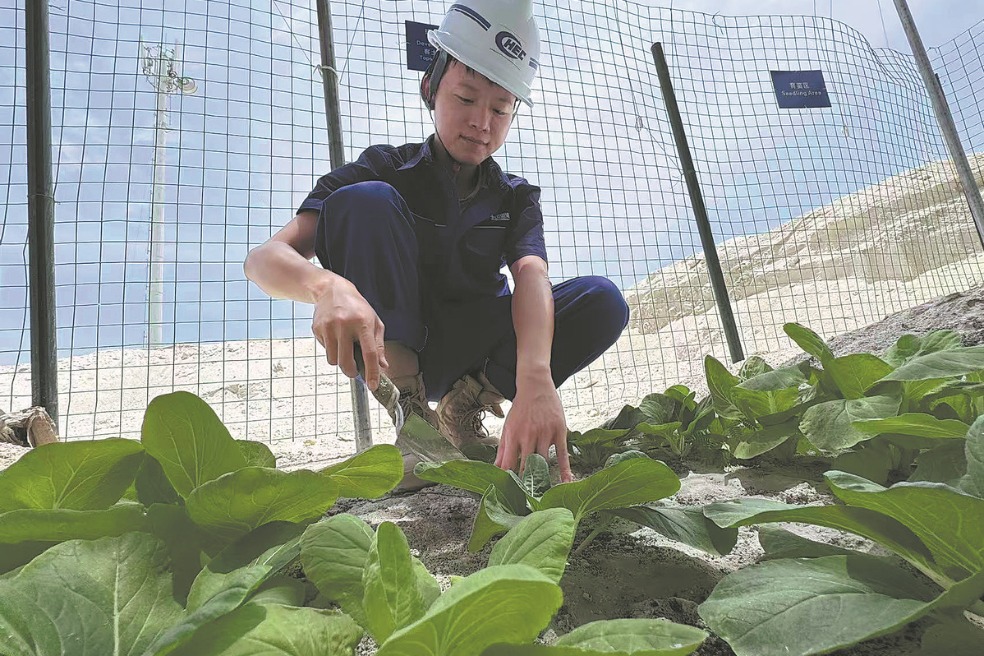Seniors are using more phone apps
However, they hope developers can improve security and simplicity of use

Chatting with friends through WeChat videos and sharing travel photos on the app has become a routine for Feng Jun since she went to Beijing from Liaoning province to look after her grandson six years ago.
The 72-year-old, who is open to internet products, has even learned to use WeChat to send red envelopes containing cash gifts to relatives and shop for herself.
However, she was recently a bit confused by the app, as she found that every time she finished buying something on WeChat, she would receive a text message noting her bank card was charged, which had never happened after she put the money in her WeChat wallet.
"In the beginning, I tried to figure out the problem by myself, instead of disturbing my son, as he's busy with work. But I failed after studying the app for a long time, so I had to turn to him," she said.
The problem was actually simple.She had previously asked her son to help transfer 3,000 yuan ($440) to a relative through her mobile phone,but because her WeChat wallet balance was insufficient, her son bound her bank card to the app and later did not unbind it.
"For many users of the app, this might not be a problem. But for me and my generation, that's complicated and a challenge," she said,calling for the app operator to make functions easier to use for the elderly.
Feng is not alone. In 2021, 18.9 percent of the Chinese population was 60 and over, and more than 11.5 percent of the 1.3 billion netizens were in the age group, according to the National Health Commission and the China Internet Network Information Center.
In a questionnaire conducted by the China Consumers Association issued in December, 61.4 percent of 1,926 participants said they used apps every day, mainly covering social, news, photo, navigation,healthcare, entertainment, payment and catering.
More than 70 percent of participants demanded apps be simplified, the association said, adding that larger font size, fewer pop-up advertisements and privacy security were also requested.
In action
With the aging of the population,the demographic of Chinese netizens is also changing, bringing higher requirements for government departments in cyberspace management and urging internet enterprises to transform or upgrade their products to help more elderly people access online services.
To narrow the digital gap, the State Council, China's cabinet,issued a notification in 2020,requiring greater efforts to solve the elderly's difficulties in using intelligent technologies and calling for reform to make apps technology friendly for senior citizens.
With its leading role in the internet industry, the Ministry of Industry and Information Technology quickly took actions. It first made plans for the reform and specified the central government's requirements, and then launched a campaign among websites and apps in January 2021.
To inspect whether the reform was implemented, the association selected 104 apps frequently downloaded by older netizens and discovered that 76 percent of the apps had been upgraded to give the elderly easier access to the internet.
For example, online travel agency Ctrip has designed a special version of its app for old users with a larger font size, cleaner web pages and simplified functions. Thanks to the mode, elderly users can enjoy services such as ticket buying and hotel booking, without any pop-up advertisements, and even be provided reading functions about all the information on the app if they have visual difficulties.
The association's survey showed that the number of elderly users registered on the Ctrip app has seen a significant rise since the special edition was launched,which also brought more online orders for the travel agency.
After learning that many elderly users have a big demand for human services while using apps, WeChat opened a hotline, 95017, in May 2021 to provide them with one-to-one services on WeChat Pay. Those not good at speaking Mandarin can also enjoy dialect services via the hotline.
Alipay, another digital wallet app, took measures to respond to the elderly's concerns about online payment, such as by offering them online teaching videos in 2019 and asking volunteers to guide them in using ride-hailing and shopping services on the platform in March 2021.
Higher demands
Although services and functions of many apps have been optimized in recent years, elderly people, a major consumption group in China, have still raised higher requirements for smart devices.
In the association's questionnaire, more than 81 percent of the participants said that they welcome and accept new things in the internet era, with about 45 percent saying they hope to see apps that are specifically designed for the elderly.
When asked what kind of special apps they most want to have, 68.8 percent of the participants put healthcare-related content as a top priority, followed by nursing care,payment for daily expenses and social services.
While urging apps to be more technology-friendly by simplifying functions, 66.7 percent of the participants also highlighted the importance of protecting property safety, suggesting app operators guarantee the authorization of information and focus more on privacy protection.
The property concern came after telecom and online fraud were rampant across the country in the past few years, and many elderly were targeted.
Early last year, for example, an old man surnamed Liu, from Jiujiang, Jiangxi province, called the police after he was scammed through a financial app, according to Jiujiang Daily, a local news outlet.
"I'm getting older but my pension isn't high, so I wanted to use my savings to earn more money to care for myself instead of becoming a bigger financial burden for my children,"Liu told the paper.
At first, he selected a small financial investment in the app to have a try. After obtaining returns, he increased his investment to 10,000 yuan, but soon he found that the app could not open anymore, the paper said.
"At that moment, I realized that I was cheated, so I turned to the police," the media quoted Liu as saying.
With the assistance of the police in Jiujiang and Wuhan, Hubei province, the scammer, who was identified as Zhou, was detained in May last year, and part of Liu's investment - 7,000 yuan - was recovered, the paper said, adding that Zhou has confessed to using the app to transfer users' property.
More to do
As more seniors become internet users and the "silver economy" rapidly develops nationwide, the association called for stronger oversight in the app market, suggesting government agencies play their supervisory role in purifying the online environment.
The association also pledged to conduct regular surveys on apps,urging app initiators and operators to shoulder more social responsibilities to protect the legitimate rights and interests of the elderly.
Meanwhile, it said that apps in industries that the elderly need most, including healthcare, nursing care and payments, should provide more convenient services to ensure their concerns can be responded to in a timely manner.
Additionally, it encouraged app designers to increase the analysis of their users to understand more about the elderly's habits of surfing the internet and reduce unnecessary identity verification steps for seniors.
Furthermore, personal information protection, data security and property safety must also be made a priority in developing apps, it said,urging app operators to strengthen content reviews on their platforms and take more measures, such as notification or risk alert, if information suspected of luring users to pay or consume is found.
"Useful content, simplified operation and a safe environment for apps will attract more elderly residents to embrace cyberspace and benefit from the internet," the association said, calling for all walks of life to join the team as it will enrich the lives of the elderly and promote social development.
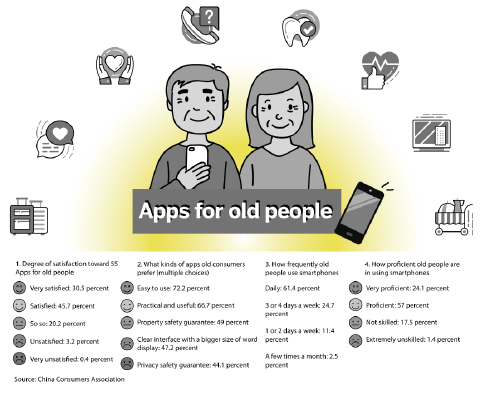
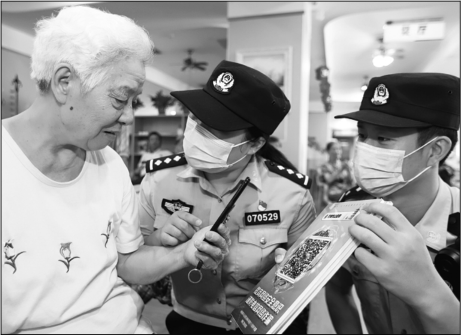
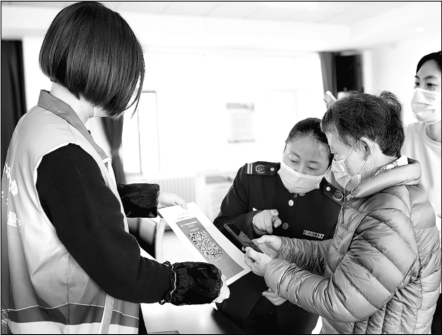
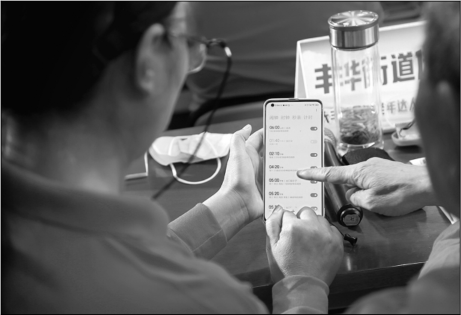
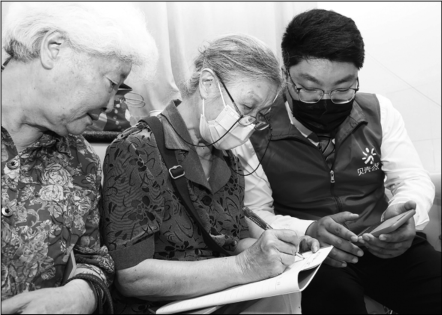
Today's Top News
- Overhaul pledged after pre-made meal controversy
- US push on tariffs condemned
- Promoting international rule for fairer global governance
- Madrid talks show negotiations remain the best way forward: Editorial flash
- China, US reach basic consensus on TikTok
- Nation's growth steady amid headwinds






















